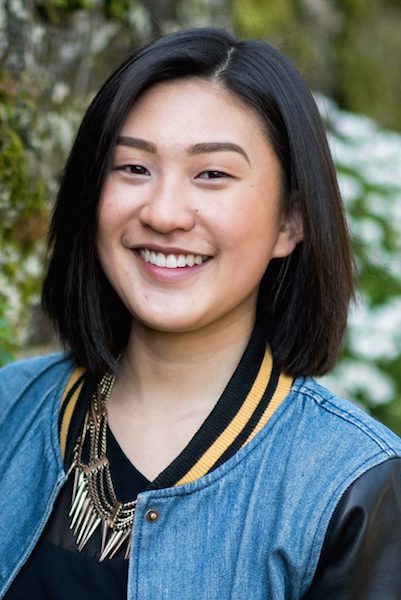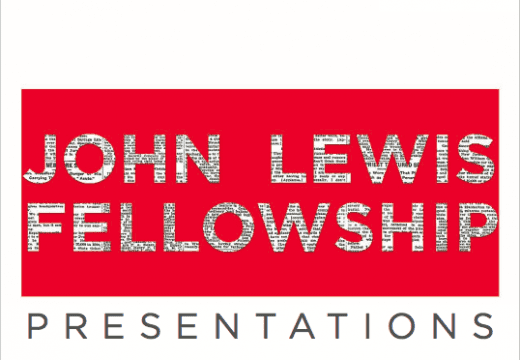Details
Article
“I write to give readers strength to take back their happiness, to tell the world to kiss your ass if it thinks you’re going to die to satisfy other people and old, outdated, antiquated beliefs. I write so that you can say, ‘NO FUCKIN’ WAY’ when the world tries to convince you that you’re not supposed to be free.” (1)
The libation water trickled first into the shape of the African continent and then into the shape of a heart.
Dr. Daniel Black’s impassioned speech about his commitment to doing social justice work through the written word, delivered during our first week at the National Center for Civil and Human Rights, moved me to silent tears. Minutes later, tears again trickled down my face, this time while I was partaking in a libation and while holding onto Dr. Roslyn Pope’s waist for support. That hour-long session would the be first of many historical moments for me in this fellowship, connecting me to my history through the voices of ancestors featured in Dr. Black’s The Coming and in sharing space with Dr. Pope, who authored ‘An Appeal for Human Rights’ while serving as Spelman College student body president in 1960. I cried when the libation water trickled first into the shape of the African continent and then into the shape of a heart. I cried for my ancestors and how proud they would be to see me learning about the Civil Rights Movement in Atlanta. I cried for all of my friends who, barely out of their teens, are already burnt out by the burden of oppression and who I wish could have heard Dr. Black’s words and leaned on Dr. Pope’s shoulder and gleaned healing from them. Through this experience, the concept of Sankofa—looking back in order to move forward—was planted in my mind, and since then, has begun to bloom into something much grander: a vision for a radical humanization through a reimagined education.
I believe that individual transformation lies at the core of social justice work and is best fostered through education.
When Congressman John Lewis spoke to the fellows, he posed the question, “Is it possible to make humankind a little more human?” I believe it is, but that it’ll take a total restructuring of the American educational system. While policy and legal advocacy are undoubtedly necessary for the struggle for social justice, I believe that individual transformation lies at the core of social justice work and that that is best fostered through education. For me, colleges and universities represent the space in which a philosophy of radical humanization—expanding our cultural ideas of humanity, who is deemed worthy of human rights, and how we can refashion ourselves and each other in order to unlearn internalized oppression—has the most potential to enact the most change. Given the right educational environments, young people are encouraged to imagine new worlds, and thus new selves. As an aspiring director of a multicultural center and college administrator, I am committed to revolutionizing the way universities are structured in order to resituate the individual into larger conversations about global systems, structural change, and the practice of social justice. I want to create educational spaces that empower young people through teaching histories that have been systemically denied them and that foster an inclusive culture of resistance to the status quo.
In A Case for Reparations, Ta-Nehisi Coates speaks of reparations to Black Americans not just as monetary compensation, but as “a national reckoning that would lead to spiritual renewal.” (2) In order for the United States to move forward as a society, we must confront our role in establishing global and domestic inequity and violence throughout our history and commit to a long process of healing by realizing human rights for all. Accomplishing this and providing reparations for past and ongoing injustices will require international coalitions of activists with a wide variety of specializations and networks. Likewise, institutions of higher education— particularly predominantly white institutions (PWIs)—must go through a similar process of reckoning and reconciliation.
Access to higher education has never been evenly distributed, and the resulting campus climates can be extremely hostile and inaccessible for students from low-income communities, students of color, first-generation college students, migrant students, and LGBTQ+ students
It would be naïve to assume that the same systems of racism, classism, and cis- heteropatriarchy don’t also influence the structure of American schools. Too many universities operate under the lie that because schools are no longer legally segregated by race and sex that the university is an equitable environment. In reality, access to higher education has never been evenly distributed, and the resulting campus climates can be extremely hostile and inaccessible for students from low-income communities, students of color, first-generation college students, migrant students, and LGBTQ+ students, making it difficult to learn, let alone see themselves as change makers. Ironically, this is particularly true at ‘progressive’ PWIs, who believe that because they cater to more ‘liberal’ demographics their structural foundations are beyond criticism or reform. Having just graduated from a private liberal arts college renowned for its progressive political bend, I know this to be true. Universities are microcosms of the society around us, so it is no wonder that in the United States, universities perpetuate a limited liberation only for those who are able to survive in the ivory tower of academia.
The work of taking on centuries-old institutions is daunting, exhausting, and can sometimes seem like a hopeless battle. When I entered this fellowship, I was admittedly exhausted and pessimistic about the prospects of higher education reform, as many people who have made careers working in universities often are. Now, I’m proud to say that I have a renewed sense of hope and passion for educational reform and the future of institutional diversity in universities. I have hope because programs like the John Lewis Fellowship exist.
In order to create a just world, those in places of privilege must also be able to confront their privileges and use them to further advance the humanity of the oppressed.
This fellowship has embodied many of the things that I believe are vital to empowering young people and beginning the conversation about what a new humanity might look like. Dr. Karcheik Sims-Alvarado and La’Neice Littleton, along with their networks of influential local Black scholars, politicians, artists, and activists exemplified the importance of mentorship and exposing young people to role models—people that many of the fellows have said we want to be just like. These opportunities have literally created spaces for intergenerational dialogue and co-learning, which is integral in effective activism. This fellowship has also highlighted the importance of educating those who are privileged by systems of race, class, gender, sexuality, religion, language, and nationality in order to make better allies. In order to create a just world, those in places of privilege must also be able to confront their privileges and use them to further advance the humanity of the oppressed. I’ve also been challenged to continually work to make my activism accessible to as many people as possible and not foreclose justice to those who haven’t been afforded the same educational and economic opportunities that I have. These experiences have been invaluable, and will undoubtedly shape my activism for years to come. I know that in the grand scheme of things, higher education reform is but one tiny factor in the interconnected web of social justice and human rights; yet I’m empowered by something that Dr. Black said just four weeks ago: “It only takes one little light to disturb an eternity of darkness.” (3)
References:
- Black, Daniel. “The Coming.” Address.
- Coates, Ta-Nehisi. “The Case for Reparations.” Atlantic June 2014: n. pag. The Atlantic. Masthead, June 2014. Web. June 2016.
- Black, Daniel. “The Coming.” Address.


